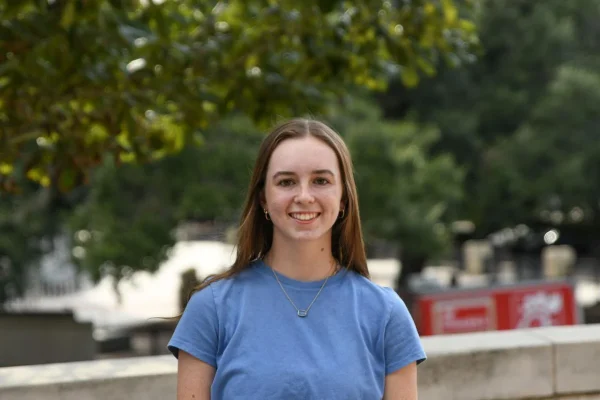A panel featuring research about emergency contraception conducted by LSU students and staff took place Tuesday night in the Hans and Donna Sternberg Salon in the French House from 5-7 p.m.
The Manship School of Mass Communication Professor Alyson Neel and political science senior Layla Harmon led the research effort, which began last spring. They conducted a broad survey across 28 classrooms, reaching approximately 4,195 students from various senior colleges. Of these, 655 responses were analyzed in collaboration with the Manship School of Mass Communication’s Reilly Center for Media and Public Affairs.
The focus of the study was to assess students’ knowledge about emergency contraception – from understanding where to access it to knowing how it works and recognizing potential barriers to obtaining it.
According to the research findings, 96% of students were aware of EC before taking the survey, while only about 87% felt confident in knowing where to obtain it. However, despite general awareness, multiple barriers may prevent students from accessing EC when needed. Among these barriers, the top concern was out-of-pocket cost, cited by about 65% of respondents. Close behind were anxiety and stigma, with around 63% of students indicating these as obstacles, and about 56% noting a lack of accurate information as a barrier. Further complicating access, “Less than half of the student respondents are confident that EC is legal in Louisiana,” Neel said.
Additionally, 85% of students reported that their healthcare provider had never suggested keeping EC on hand. “Students are really hungry for more information, for accurate information,” Neel said. The survey also revealed that the majority of students support initiatives to broaden EC access and improve education on where and how to obtain it.
While LSU’s Student Health Center offers a variety of birth control options, 42% of survey respondents were unsure if EC was available there, and 33% believed it was not. Rebecca Breaux, a registered nurse at the Health Center’s Sexual Health and GYN Clinic, clarified the Health Center offers all forms of birth control including IUDs and birth control pills, for which students must use insurance or pay out of pocket. EC is only available at the Health Center for victims of sexual assault.
Student-led organizations, such as Feminists in Action, have taken steps to address these concerns and advocate for broader EC access on campus. Last spring, FIA distributed 2,000 packages of emergency contraception to students. Of these, 1,500 units were donated through the Advocates for Youth and the American Society for Emergency Contraception’s EC4EC program.
Harmon explained, “There is no place on campus where EC is necessarily easily accessible and free.”
The idea for this survey originated when Neel was drafting a syllabus and realized there was limited information on EC access available to students.
“I realized that access specifically to emergency contraception on LSU’s campus and in the surrounding area is actually quite limited, and so that led me to some research questions,” she said.
Neel focused on survey development, while Harmon led student outreach efforts across campus. Together, their research has highlighted specific barriers that hinder access to EC, providing insights into how LSU might better support students in accessing emergency contraceptives.









